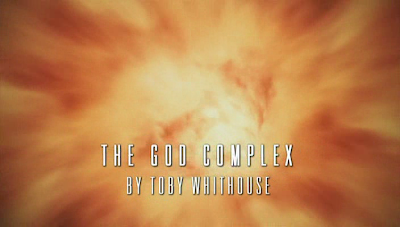First, just a heads-up; if you want to catch me talking Who online, please be sure to check out Whoverse - you can listen live beginning at 1:00 pm CST by clicking this link. Enjoy!
So we've reached the end of another season of Doctor Who - a season which has seen a slight change in schedule (mostly being split into two "halves" over the course of a year); a slight change in approach (an overreaching, much more intricately plotted arc that permeates and informs most of the stories throughout this season); and a much darker, more ominous tone than in the past. Taken overall, does it work?
In my opinion, it's a very mixed bag - on the one hand, I don't think Lost-style storytelling works in Doctor Who. Having a recurring motif and/or driving plot (Bad Wolf, Harold Saxon/Master) works because there are times when it can dip in and out of the regular season. This time, it seemed as if several episodes (notably The Rebel Flesh/The Almost People) seemed rushed to end, if only to drive home "the big arc". Echoing my thoughts from the mid-season review, I think the split season hurt the show in terms of flow - it just seemed to be narratively disjointed. I think once I view the stories in succession on DVD, some stories I didn't care for might seem brighter, and I think the "join" between A Good Man Goes to War and Let's Kill Hitler may look extremely weak.
However, I strongly commend Moffatt and company for taking great risks with the program, especially towards the end of The Wedding of River Song. Given the increasing profile of Doctor Who, it might have been easier to "play it safe" - to just do the overarching arc from this season. Part of the charm of the show is its knack for reinvention - from the "science and history" show to the "monster era", from the "U.N.I.T. era" to "Gothic horror" - Who's format has always been very resilient. I may not have cared for the way in which Moffatt and his team have handled changes...but the fact that they took a huge roll of the dice creatively has meant that I'm learning to watch Who in a much different way.
Some other brief notes about this season:
- Re: The Rebel Flesh/The Almost People - like many, I thought the Doctor "destroying" flesh Amy - in light of his "they're people, too" - seemed harsh. Would it not have made much more narrative sense (especially in terms of the arc) to have him somehow "accidentally" destroy Amy, realizing his destructive potential (as per A Good Man Goes to War) and then go off on a search? Or am I overthinking this?
- Mark my words - once you fans watch Closing Time on DVD, you'll agree with me that it has charm. And you'll like it. Just like I will enjoy a second viewing of Curse of the Black Spot as much as you did. Honest.
- In light of events from The Wedding of River Song, this episode's title takes on a slightly different meaning.




















